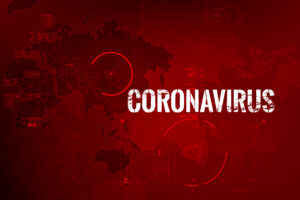
(Image via Getty)
It seems like these days our news feeds are only filled with stories of COVID-19 diagnosis, deaths and maybe even some recoveries. Every click, every channel, maybe even thought, surrounds this pandemic, which has all individuals, not just officials and health care workers, fixated.
Other newsworthy events must be occurring, although none seem to be capturing our attention, or fear, as much as COVID-19. But there are other tragedies and there are other deaths. One need not be a trusts and estates attorney to learn that individuals are still dying, for a host of reasons. In reaction, people are attempting to mourn in uncertain and unusual circumstances. Given the current state of the world, recent decedents may not have public funerals. They may not be properly eulogized and their survivors may not be able to practice traditional mourning period.
As is the case with all legal proceedings, probate and estate cases have slowed as our communities and courts react to the current situation, regardless of whether COVID-19 directly or indirectly was the impetus for death. Perhaps this halt in life and court proceedings is felt the deepest by the decedents’ survivors, especially the survivors of those who have passed away as a result of a crime. It is these decedents whose deaths affect not only their immediate family, but the greater community and civilization at large.
On Sunday, amidst the litany of COVID-19 deaths Rabbi Josef Neumann, of Rockland County, New York, died, at the age of 72. Neumann was a victim of the December 28, 2019, attack on a Chanukah party held at another rabbi’s Monsey, New York, home. Allegedly, Grafton Thomas attached six individuals with an 18-inch machete at the holiday gathering. Neumann was stabbed in his skull, which damaged his brain and left him in a coma for almost two months. He underwent several operations before his death.
Thomas was charged with five counts of attempted murder and federal hate crimes.
Now that Neumann has passed away, Thomas could face an upgraded murder charge. The Rockland County district attorney’s office plans to present evidence for a charge of second-degree murder, although the hearing is currently unscheduled because of COVID-19.
Thomas pleaded not guilty to the 14-count charge brought against him by the Rockland County district attorney’s office. Additionally because of the nature of the crime, there is also a 10-count federal indictment charging him with injuring five victims while trying to kill them because of their religion. It also charges that he obstructed the free exercise of religion in his attempt to kill the individuals. He pleaded not guilty to the federal charges as well.
It has been reported that Thomas had anti-Semitic books and that he also internet-surfed for potential targets prior to the incident. His defense attorney has argued that he suffers from a history of psychosis. A defense-hired psychiatrist has supposedly found Thomas incompetent to stand trial. Two prosecution experts disagree and have found him competent. A judge has not yet ruled on this issue.
While the courts are essentially at a standstill, it seems that the New York State legislature is trying to recognize Neumann and the significance of his tragic death. Gov. Andrew Cuomo has proposed legislation equating hate crimes with domestic terrorism. The law will be called the Josef Neumann Hate Crimes Domestic Terrorism Act, and it will be voted on by the legislature this week, as part of the budget.
During this time of uncertainly, it feels like the wheels of justice are moving incredibly slowly, if at all. Moreover the limitations that we are undertaking to protect our families and communities makes processing tragedies like the Chanukah party attack and Neumann’s death all the more difficult. When we emerge from the current COVID-19 crisis, issues like hate crime will remain. We owe it to ourselves and to our communities to follow the example of Cuomo and New York State in proactively remembering all people in need during this unsettling time and memorializing in some way the impact of their loss, not just on our families but the community as a whole.
Cori A. Robinson is a solo practitioner having founded Cori A. Robinson PLLC, a New York and New Jersey law firm, in 2017. For more than a decade Cori has focused her law practice on trusts and estates and elder law including estate and Medicaid planning, probate and administration, estate litigation, and guardianships. She can be reached at cori@robinsonestatelaw.com.

